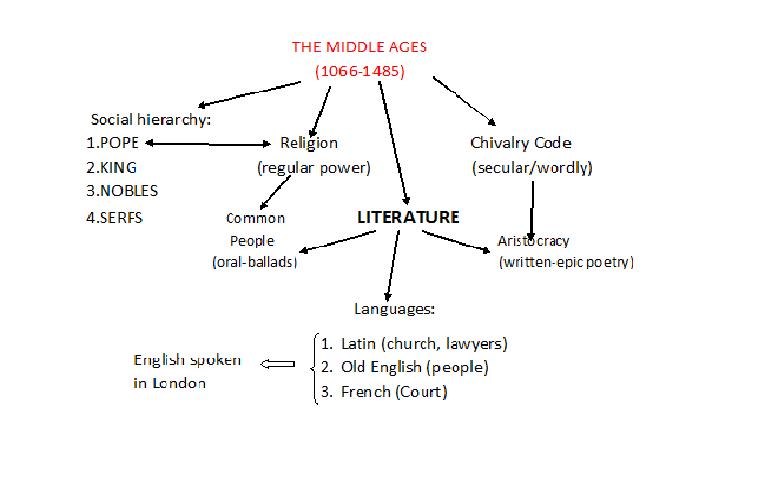Textuality » 4A Interacting

The Anglo-Saxons were a group of German tribes that spoke Old English that is a language from Germany before 1066, they were organized in 7 kingdom called Northumbria, Mercia, East Anglia, Essex, Kent , Sussex and Wessex. They entered the Great Britain in different moment and they reigned until the Norman invasion in 1066. This is a crucial date for English history because it marks the beginning of a period which is called the Middle Ages, that covers roughly the years from 1066 to 1485. The Norman were a population that came from Nothern France and had Vikings origin. In 1066 they conquest the England with their king William I that had been called William the conqueror because he won all English land. He was a very important king because he introduced in England the feudal system; it was not a new form of organization because William brought it from the Continent (Europe). The king divided the lands he had won among his knight and barons in exchange for specific services and the vassals in turn divided their land up among less powerfull vassals. But there was a problem because the king was afraid that barons, knight and vassals could became stronger than him and so he gave lands in exchange of services but the land were not large.
The Feudalism is a pyramidal hierarchical system, according to which on the top of the pyramid there was the Pope, on the second level the king, on the third the aristocracy and finally the serfs. The church and the pope were on the top because they were the most important institution, religion was the most important code and all people were interested in salvation whatever social classes they belong to.
This organization became to break down because the barons became tired of the king’s taxes and so on 1215 they forced the king to sign the Magna Carta, it was the result of a process of negotiation of power between the king (John Lackland) and the barons, so the Magna Carta limited the royal power. Also the peasants in 1381 rebelled against heavy taxation with the Peasants’ Revolt.